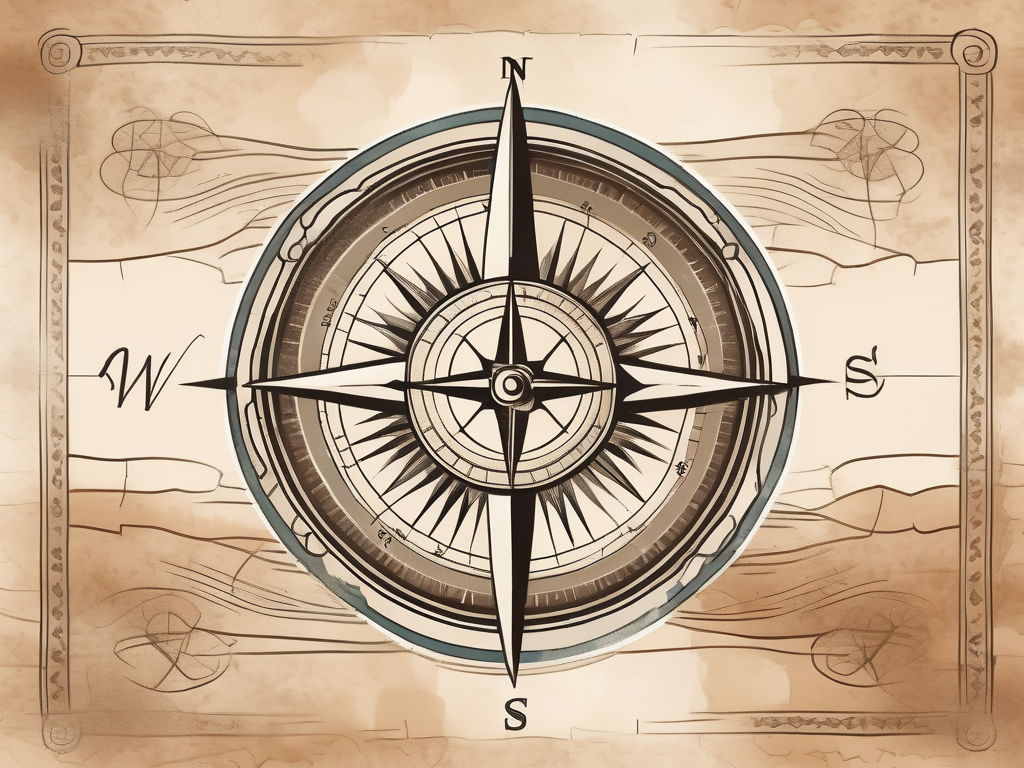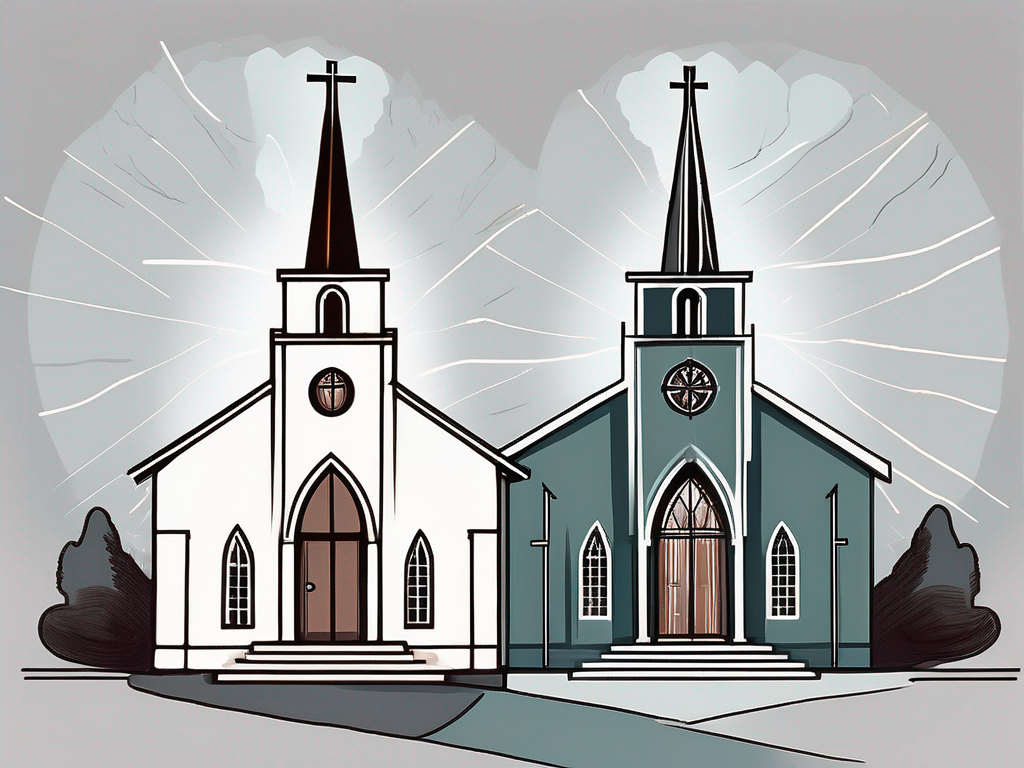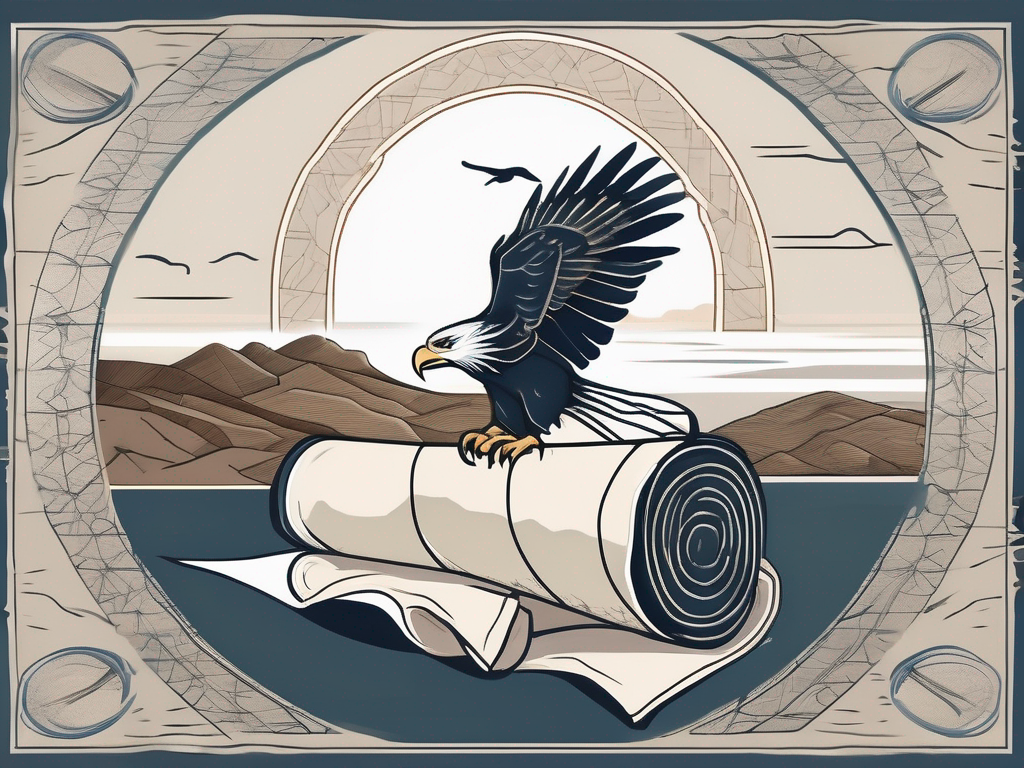Calvinism, also known as Reformed theology, is a Christian belief system that traces its origins back to the 16th century. It was named after the influential French theologian John Calvin, who played a key role in shaping its doctrines and spreading its influence. In this comprehensive guide, we will dive deep into the origins, history, core tenets, comparisons to other Christian denominations, and the impact of Calvinism on society and culture. Prepare to embark on a journey of understanding as we explore the intricacies of Calvinist belief.
Origins and History of Calvinism
John Calvin, born in 1509, is considered to be the father of Calvinism. His work, “Institutes of the Christian Religion,” served as a cornerstone for this belief system. Calvin emphasized the sovereignty of God and the importance of predestination. His teachings gained popularity and spread throughout Europe, especially in countries like Switzerland, the Netherlands, Scotland, and England.
Calvin’s teachings, which were based on a careful interpretation of the Bible, sparked the Reformation movement and had a profound impact on Protestant Christianity. The spread of Calvinism in Europe played a significant role in shaping the religious landscape of the continent during the 16th and 17th centuries.
During the 16th century, Europe was undergoing a period of religious turmoil. The Catholic Church, which had been the dominant religious authority for centuries, was facing criticism and opposition from various reformers who believed in the need for change. John Calvin was one of these reformers who sought to challenge the established religious order.
Calvin’s ideas were heavily influenced by the works of other reformers such as Martin Luther and Ulrich Zwingli. However, he developed his own unique theological system that became known as Calvinism. At the heart of Calvinism was the belief in the sovereignty of God, which meant that God had complete control over all aspects of the universe, including human salvation.
One of the key doctrines of Calvinism was the concept of predestination. According to Calvin, God had predetermined the fate of every individual, deciding whether they would be saved or damned even before they were born. This idea was controversial and sparked debates among theologians and religious scholars.
Calvin’s teachings gained traction in various parts of Europe, particularly in Switzerland where he established a theocratic government in the city of Geneva. The city became a center for Calvinist thought and attracted followers from all over Europe. Calvin’s influence also spread to other countries, such as the Netherlands, Scotland, and England, where his ideas resonated with those seeking religious reform.
The spread of Calvinism had a profound impact on the religious landscape of Europe. In countries like Switzerland and the Netherlands, Calvinism became the dominant form of Protestantism, shaping the beliefs and practices of the people. Calvinist churches were established, and Calvinist theology became the foundation for religious education and worship.
In Scotland, Calvinism played a crucial role in the Scottish Reformation. The teachings of John Calvin were embraced by Scottish reformers, leading to the establishment of the Presbyterian Church of Scotland. Calvinism became the official religion of Scotland and had a lasting influence on Scottish culture and society.
In England, Calvinism had a significant impact on the development of the Church of England. During the reign of Queen Elizabeth I, there was a growing divide within the church between those who favored a more Catholic-style worship and those who embraced Calvinist teachings. This conflict eventually led to the formation of the Puritan movement, which sought to purify the Church of England from what they saw as remnants of Catholicism.
Overall, the spread of Calvinism in Europe during the 16th and 17th centuries had far-reaching consequences. It challenged the authority of the Catholic Church, sparked religious debates and conflicts, and shaped the beliefs and practices of millions of people. Today, Calvinism continues to be a significant theological tradition within Protestant Christianity, with millions of adherents around the world.
The Role of John Calvin
John Calvin’s influence on Calvinism cannot be overstated. A brilliant theologian, Calvin dedicated his life to studying the scriptures and developing a comprehensive system of doctrine. His intellectual prowess and unwavering commitment to his beliefs shaped the course of Protestant theology in profound ways.
Calvin firmly believed in the absolute sovereignty of God, asserting that every aspect of human existence is under the divine control and plan. This concept, known as predestination, was a cornerstone of Calvin’s theology. He argued that God, in His infinite wisdom, had predetermined the eternal destiny of every individual, either for salvation or damnation. This idea, while controversial and challenging, provided a sense of comfort and assurance to Calvinist followers, who found solace in the belief that their lives were part of a divine plan.
Furthermore, Calvin’s teachings extended beyond the realm of theology. He recognized the importance of ethics and emphasized the need for individuals to live in accordance with God’s will. Calvinist ethics emphasized hard work, discipline, and a sense of responsibility towards one’s community. These values, deeply rooted in Calvin’s teachings, had a profound impact on the development of Western society, particularly in areas influenced by Calvinism.
Church governance was another area where Calvin made significant contributions. He advocated for a system of church organization that emphasized the authority of scripture and the autonomy of local congregations. This model, known as Presbyterianism, became a defining characteristic of Calvinist churches. Under this system, congregations were governed by a body of elders, elected by the members, who were responsible for making decisions and ensuring the spiritual well-being of the community.
Calvin’s writings and sermons continue to be widely studied and cherished by adherents of Calvinism today. His magnum opus, “Institutes of the Christian Religion,” remains a seminal work in Protestant theology. Its systematic approach to theology and comprehensive exploration of Christian doctrine have made it a foundational text for generations of theologians and scholars.
In conclusion, John Calvin’s impact on Calvinism extends far beyond his own lifetime. His theological insights, ethical teachings, and ideas on church governance have left an indelible mark on Protestant Christianity. Calvin’s unwavering commitment to the authority of scripture and the absolute sovereignty of God continue to shape the beliefs and practices of millions of believers around the world.
The Spread of Calvinism in Europe
Calvinism’s influence spread rapidly throughout Europe in the 16th and 17th centuries. It found fertile ground in countries that were seeking religious reform and challenged the authority of the Roman Catholic Church. The Netherlands became a stronghold of Calvinism, with Amsterdam serving as a hub for theological discussions and the training of pastors.
In Scotland, Calvinism became the official religion, and its impact can still be felt today in the Presbyterian Church of Scotland. In England, the Puritans, who were influenced by Calvinist doctrine, played a pivotal role in the English Civil War and the subsequent establishment of a parliamentary system.
Calvinism also had a significant impact in North America. The Puritans who settled in New England brought their Calvinist beliefs with them, shaping the religious, political, and cultural landscape of the region.
Calvinism in the Modern World
Although Calvinism reached its peak influence during the Reformation era, its impact can still be seen in modern-day Christianity. Many Protestant denominations, including Presbyterianism, Reformed churches, and some Baptist churches, continue to adhere to Calvinist beliefs and teachings.
Calvinist thought has also influenced various aspects of society and culture. From the work ethic associated with the Protestant work ethic to the impact on literature and art, the ideas of Calvinism have left an indelible mark on Western civilization.
Core Tenets of Calvinist Doctrine
The core tenets of Calvinist doctrine revolve around the sovereignty of God and the salvation of individuals. Let’s explore some of the key beliefs that define Calvinism.
Predestination and Election
Calvinism teaches that God predestines who will be saved and who will not. This doctrine of election asserts that God’s choice of individuals for salvation is based solely on His sovereign will and not on any merit or worthiness of the individual.
This belief is often seen as controversial, as it raises questions about human free will and God’s justice. However, Calvinists argue that God’s choices are perfect and just, even if they are beyond human understanding.
The Sovereignty of God
Calvinists believe in the absolute sovereignty of God, meaning that God is in control of all things and that nothing happens without His will or permission. This includes both good and evil events, as God’s sovereign plan extends to every aspect of life.
While this belief can be difficult to reconcile with the existence of evil and suffering, Calvinists emphasize the trust and dependence humans should have on God’s wisdom and providence.
The Total Depravity of Man
Calvinism teaches that due to the fall of Adam and Eve in the Garden of Eden, all humanity is born with a sinful nature. This total depravity implies that humans are unable to save themselves through good works or personal effort.
According to Calvinist theology, it is only through God’s grace and the redeeming work of Jesus Christ that individuals can be saved from their sinful state.
The Perseverance of the Saints
Calvinists believe in the perseverance of the saints, also known as “once saved, always saved.” This doctrine asserts that true believers, who have been elected by God, cannot lose their salvation. They are eternally secure in their relationship with God.
This belief provides comfort and assurance to Calvinists, knowing that their salvation is not dependent on their own actions or the unpredictable nature of human will.
Calvinism vs Other Christian Denominations
Calvinism shares many similarities with other Christian denominations while also differing on some key theological points. Let’s explore how Calvinism compares to Catholicism, Lutheranism, and Arminianism.
Calvinism and Catholicism
Calvinism and Catholicism have significant theological disagreements, particularly in the areas of predestination, the role of good works in salvation, and the authority of the Pope. These differences played a critical role in the Protestant Reformation, which was sparked by Martin Luther’s critique of Catholic doctrine.
Calvinism rejects the Catholic belief in the primacy of the Pope and instead emphasizes the authority of scripture and the sovereignty of God in salvation.
Calvinism and Lutheranism
Calvinism and Lutheranism share a common Reformation heritage and agree on many theological points, such as justification by faith alone and the authority of scripture. However, they differ in their understanding of the Lord’s Supper.
Lutherans believe in the doctrine of consubstantiation, which states that the bread and wine in the Eucharist coexist with the body and blood of Christ. Calvinists, on the other hand, hold to a symbolic or spiritual presence of Christ in the Eucharist.
Calvinism and Arminianism
Calvinism and Arminianism have historically been at odds over the issue of predestination and free will. While both believe in the importance of God’s grace in salvation, Arminianism asserts that individuals have the ability to resist God’s grace and choose to accept or reject salvation.
Calvinism, in contrast, teaches that God’s sovereign choice determines salvation, and human free will is subject to His divine purposes.
The Impact of Calvinism on Society and Culture
The influence of Calvinism extends beyond theology and has left a lasting impact on society and culture. Let’s explore some of the ways Calvinism has shaped the world around us.
Calvinism and Work Ethic
Calvinism is often associated with the Protestant work ethic, which emphasizes hard work, discipline, and frugality as virtues. Calvinists believe that every aspect of life should be lived to the glory of God, including one’s occupation and material pursuits.
This Calvinist work ethic played a significant role in the rise of capitalism and the industrial revolution, as it encouraged individuals to invest their time and resources into productive endeavors.
Calvinism in Literature and Art
Calvinist thought has had a profound impact on literature and art throughout history. The emphasis on the sovereignty of God, the human condition, and the tension between divine will and human agency has provided rich material for writers and artists.
From John Milton’s “Paradise Lost” to the works of Jonathan Edwards and John Bunyan, Calvinist ideas have found expression in literature. Similarly, the stark portrayals of human sinfulness and divine grace can be seen in countless paintings and sculptures.
Calvinism and Political Thought
Calvinism’s influence on political thought can be seen in concepts such as limited government, the separation of church and state, and the promotion of individual rights and freedoms.
Calvinists believed that the church should not hold absolute power over the state and vice versa. This idea had a profound impact on the development of democratic principles and the protection of individual liberties.
As we wrap up our comprehensive guide to understanding Calvinist belief, it is important to note that while Calvinism has had a significant impact on Christianity and Western civilization, it is just one of many theological perspectives within the broader body of Christ. The diverse interpretations of scripture and the ongoing dialogue between different denominations enrich the Christian faith and challenge believers to seek a deeper understanding of God’s truth.
Whether you identify as a Calvinist or not, exploring the beliefs and teachings of Calvinism can foster a greater appreciation for the rich tapestry of Christian thought and help us grow in our own faith journey.












